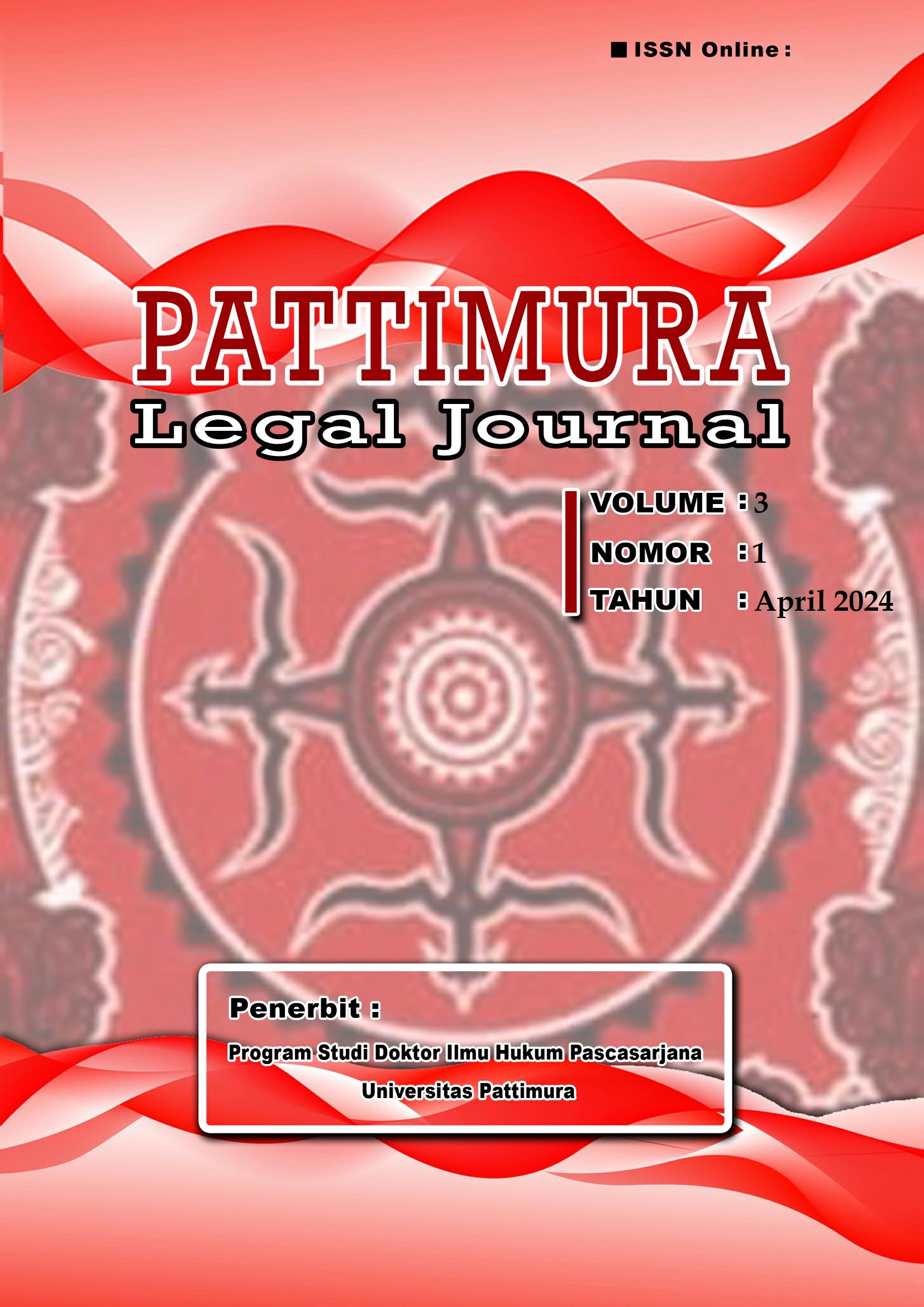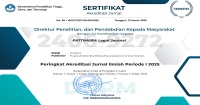Implementasi Peraturan Presiden Nomor 104 Tahun 2007 Tentang Penyediaan, Pendistribusian Dan Penetapan Harga Liquified Petroleum Gas Tabung 3 Kilogram
Abstract
Introduction: Kerosene to Liquified Petroleum Gas (LPG) conversion program as part of the Indonesian government's strategy to reduce kerosene subsidies and improve budget efficiency.
Purposes of the Research: Analyze the imperfection of the implementation of the supply, distribution and pricing of liquified petroleum gas cylinders of 3 kilograms, especially related to price abuse by some business actors.
Methods of the Research: The type of research in this paper is sociological legal research, which observes the characteristics of community behavior in a region in a certain aspect of social life.
Results Originality of the Research: From the research results, three main points can be concluded. First, data analysis shows that there are still differences in the retail prices of 3 Kg LPG Gas, which exceed the Highest Retail Price (HET) set by the government. Furthermore, there are discrepancies in the distribution of 3 Kg LPG Gas to the poor, and sales to those who should not qualify. Despite regulations and sanctions, not all distributors comply with the rules. Second, inhibiting factors in the implementation of 3 Kg LPG Gas sales in Hutaraja Tinggi District, Padang Lawas Regency, involve limitations in human resources, lack of participation from the surrounding community, weak sanctions from the Department of Cooperatives, SMEs, Industry, and Trade of Padang Lawas Regency, lack of awareness from agents and officers, as well as infrastructure problems. Third, efforts that can be made by the Department of Cooperatives, SMEs, Industry, and Trade include coordination with relevant parties, such as distributors, retailers, and LPG gas agents, to ensure smooth distribution. Efforts to collaborate with relevant parties are expected to accelerate the distribution process and address potential obstacles in the field. Additionally, the department can monitor the stock of 3 kg LPG gas in the Hutaraja Tinggi District and monitor the distribution route to ensure the availability of gas evenly. Outreach and education programs for the community are also proposed to ensure the safe and efficient use of LPG gas. Supervision of prices and availability of LPG gas, opening of complaint channels for the public, and the use of information technology are also included in the proposed efforts. Furthermore, the department is expected to collaborate with private parties, including local traders or entrepreneurs, to support the distribution of LPG gas in the area.
Downloads
References
Jurnal
Diana, Lady, perlindungan hukum tenaga kerja di Riau dalam menghadapi pelaksanaan ASEAN Economic Community, Jurnal Ilmu Hukum, Fakultas Hukum Universitas Riau, volume 6 No. 1, Pekanbaru, Agustus 2015-Januari 2016.
Zanghellini, Alerdo, “A Conseptual Analysis In Analytic Jurisprudence”, Jurnal Westlaw, August 2017.
Marshfield, Jonathan L., “Symposium: State Constitutionalism”, The Dickinson School of Law of The Pennsylvania State University, Jurnal Westlaw, 2020.
Buku
Waluyo, Bambang, Penelitian Hukum Dalam Praktek, Sinar Grafika, Jakarta, 2002.
Soekanto, Soerjono, Pengantar Penelitian Hukum, UI-Press, Jakarta, 1986.
Capra, Umar, Masa Depan Ilmu Ekonomi : Sebuah Tinjauan Islam, Gema Insani Press, Jakarta, 2001.
Online/World Wide Web, Disertasi/Tesis/Skripsi, Dan Lain-Lain
Copyright (c) 2024 Neni Suryanti, Muhammad A Rauf (Author)

This work is licensed under a Creative Commons Attribution-NonCommercial 4.0 International License.
Authors who publish their manuscripts in this Journal agree to the following conditions:
- The copyright in each article belongs to the author, as well as the right to patent.
- Authors are able to enter into separate, additional contractual arrangements for the non-exclusive distribution of the journal's published version of the work (e.g., post it to an institutional repository or publish it in a book), with an acknowledgment of its initial publication in this journal.
- Authors are permitted and encouraged to post their work online (e.g., in institutional repositories or on their website) prior to and during the submission process, as it can lead to productive exchanges, as well as earlier and greater citation of published work.
- Authors have the right to self-archiving of the article (Author Self-Archiving Policy)






















